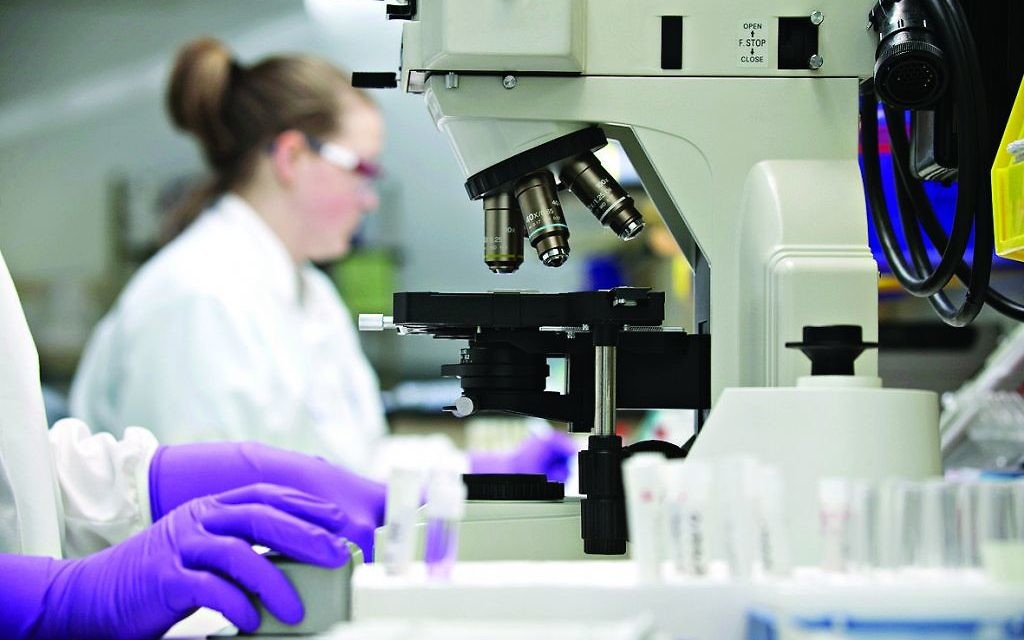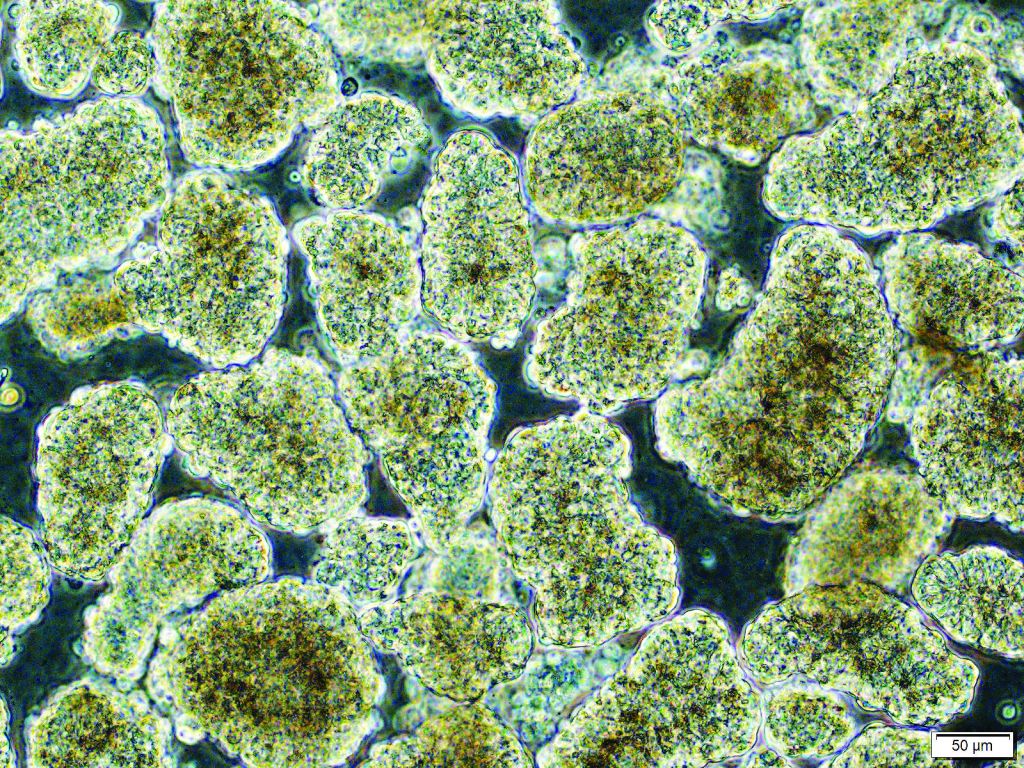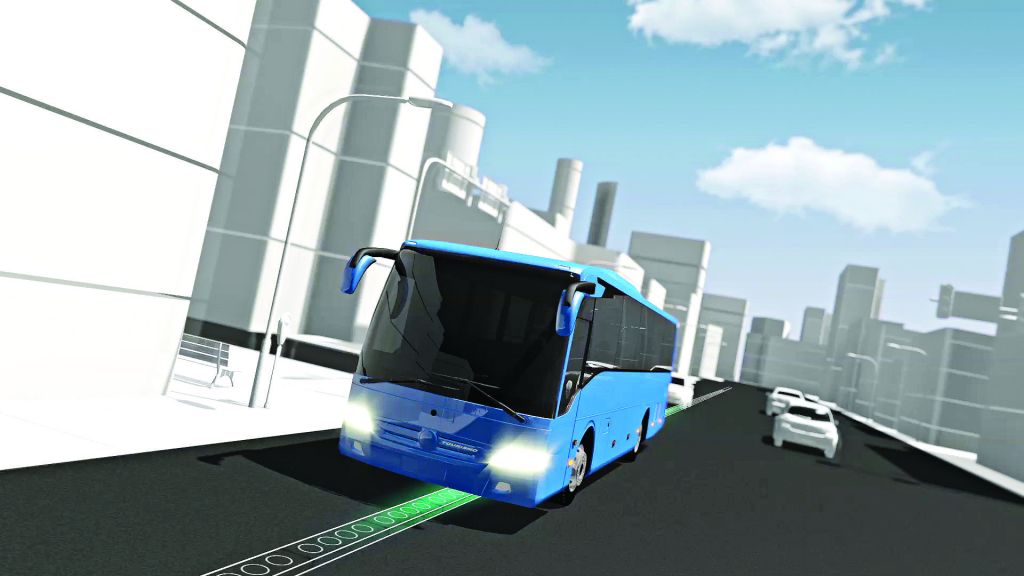Techs appeal! The latest Israeli high-tech innovations!
In our special report, we investigate the latest technological and life-changing innovations
Recent weeks have seen yet more life-changing innovations emerge from Israel, including printed human organs and software that can spot a terrorist from facial patterns.We went to Israel and report on the latest developments..
3D stem cell printing
Three-dimensional printing has been with us for a while, but Ness Ziona firm Nano Dimension recently took it to a completely new level, successfully lab-testing a 3D bio-printer for stem cells, from which organs can be made.
The idea of manufacturing life’s building blocks is as astronomical today as it would have been far-fetched 10 or even five years ago. The trial, conducted with Israeli biotech firm Accellta Ltd, showed that “the technology can deliver large quantities of high-quality cells which can be an enabler for printing even large and complex tissues and organs”.
Get The Jewish News Daily Edition by email and never miss our top stories Free Sign Up
Analysts say the market for bio-printing will be worth £5billion in eight years’ time. But is it really ‘print-your-own-kidney’ time? Investors think so. The company’s shares leapt 19 percent on the news.
Terrorist recognition app
Facial recognition software has so far been used to match faces to Facebook photos, mainly for advertisers to tailor their offerings as you walk past their billboards. But Tel Aviv-based Faception, which deals in “facial personality profiling”, has moved us from sales to security. The start-up says its software can tell a terrorist just by facial features, and claims to have identified nine of the 11 Paris attackers based just on looks. How? “Our personality is determined by our DNA and reflected in our face,” says boss Shai Gilboa. “It’s a kind of signal.”
The two-year-old firm analyses faces from video streams and other databases, encodes them in “proprietary image descriptors” and matches them to personality traits. Using machine-learning techniques, the company built a database of top-secret “classifiers,” which it says can tell if someone is a psychopath, scientist or swindler. Food for thought when next having your photo taken.
Robotic Injections
Do you have invisible veins? Does the back of your hand require a bout of corporal punishment before the nurse can take blood? If so, you’ve probably had some nightmarish experiences as the poor medics plunge in and out like blind spear fishermen.
Fear not. Scientists at Ben-Gurion University feel your pain, literally, and have come up with HANDS (Human-Assisted Needle Delivery System), a cutely-named robot that takes over the job of injecting in such situations. It uses advanced algorithms and real-time image processing to help the (human) operator to hit the spot. This laser-guided missile of the medical world is still in its developmental phase. Nurses worldwide await further news.
Period pain zapper
Get beyond the fact that it was a father-and-son team behind a wearable device to relieve menstrual pain and it’s still an interesting concept, not least because Zvi Nachum and his boy Chen developed Livia by accident. It came about when Zvi was working on the TENS machine, an existing technology which blocks specific types of pain, when he worked out how to manipulate the frequency and wave shape of the electrical nerve-stimulation technology behind it.
To Zvi, this was just an interesting distraction (not something that can be said for period pain) because he was busy working on other things at the time, so Chen took over, developing iPulse Medical and something which provides “nearly instant relief from cramps”.
How? You put gel pads with electrodes on the painful area then clip the device to a belt or pocket. Moreover, it doesn’t interfere with the woman’s hormone balance or menstrual cycle, Chen says. News of the breakthrough was greeted anxiously by hot-water bottle manufacturers.
Electric Roads
We know the future of motoring is electric, but charging such vehicles has thus far been a pain in the circuit board, because drivers end up carrying heavy and expensive batteries which power them for only a certain distance. The cleverly-named ElectRoad says it has the answer: roads that wirelessly charge your battery as you drive along them. Electric lines integrated into urban roads and hooked up to the national grid do the job perfectly easily, the company says, and can be laid at an astonishing speed.
ElectRoad’s first target market is bus companies because buses often use special lanes, but the company hopes to expand beyond this. All around the world, governments are facing public policy pressure to cut emissions and reduce reliance on oil, so the idea of ‘electric roads’ could well gain traction. Just watch where you step when you’re crossing on Shabbat.

Thank you for helping to make Jewish News the leading source of news and opinion for the UK Jewish community. Today we're asking for your invaluable help to continue putting our community first in everything we do.
For as little as £5 a month you can help sustain the vital work we do in celebrating and standing up for Jewish life in Britain.
Jewish News holds our community together and keeps us connected. Like a synagogue, it’s where people turn to feel part of something bigger. It also proudly shows the rest of Britain the vibrancy and rich culture of modern Jewish life.
You can make a quick and easy one-off or monthly contribution of £5, £10, £20 or any other sum you’re comfortable with.
100% of your donation will help us continue celebrating our community, in all its dynamic diversity...
Engaging
Being a community platform means so much more than producing a newspaper and website. One of our proudest roles is media partnering with our invaluable charities to amplify the outstanding work they do to help us all.
Celebrating
There’s no shortage of oys in the world but Jewish News takes every opportunity to celebrate the joys too, through projects like Night of Heroes, 40 Under 40 and other compelling countdowns that make the community kvell with pride.
Pioneering
In the first collaboration between media outlets from different faiths, Jewish News worked with British Muslim TV and Church Times to produce a list of young activists leading the way on interfaith understanding.
Campaigning
Royal Mail issued a stamp honouring Holocaust hero Sir Nicholas Winton after a Jewish News campaign attracted more than 100,000 backers. Jewish Newsalso produces special editions of the paper highlighting pressing issues including mental health and Holocaust remembrance.
Easy access
In an age when news is readily accessible, Jewish News provides high-quality content free online and offline, removing any financial barriers to connecting people.
Voice of our community to wider society
The Jewish News team regularly appears on TV, radio and on the pages of the national press to comment on stories about the Jewish community. Easy access to the paper on the streets of London also means Jewish News provides an invaluable window into the community for the country at large.
We hope you agree all this is worth preserving.
-
By Brigit Grant
-
By Laurent Vaughan - Senior Associate (Bishop & Sewell Solicitors)
-
By Laurent Vaughan - Senior Associate (Bishop & Sewell Solicitors)
-
By Laurent Vaughan - Senior Associate (Bishop & Sewell Solicitors)
-
By Laurent Vaughan - Senior Associate (Bishop & Sewell Solicitors)
























